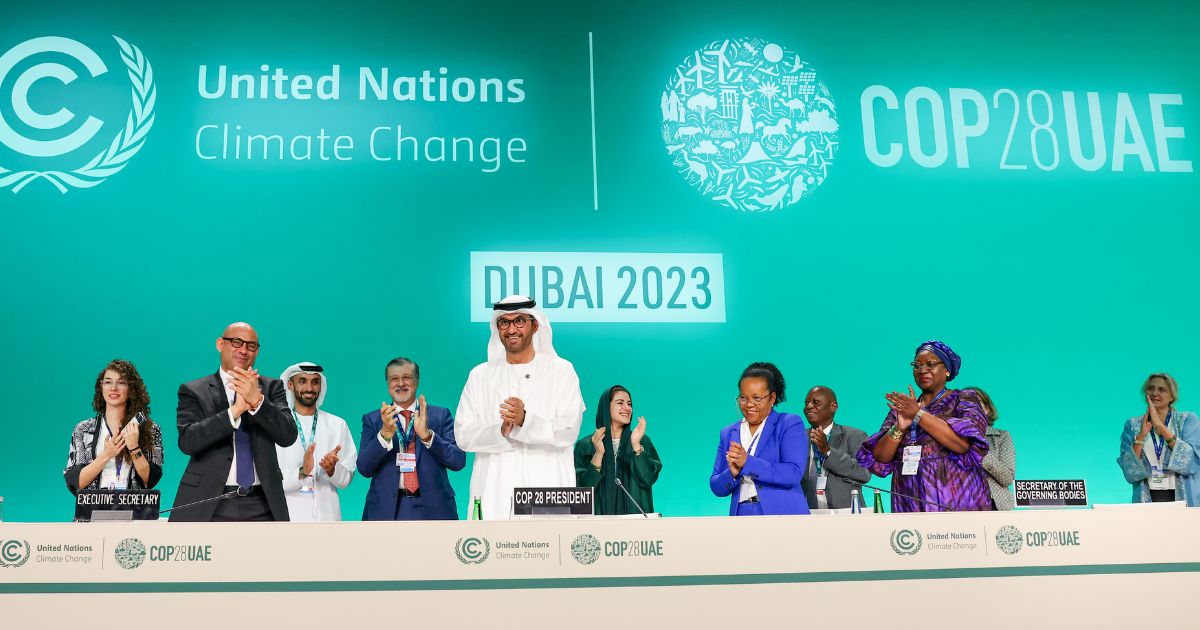COP28 summit: Draft climate deal falls short of fossil fuel 'phase-out'
12 Dec 2023

As the COP28 summit in Dubai, UAE approaches its final day, the latest draft text, issued by President Sultan Al Jaber, has refrained from addressing the phasing out of fossil fuels. The document, published by the UN’s climate body on Monday, 11 December 2023, instead puts forth ambitious proposals to triple global renewable energy capacity and double the average annual rate of energy efficiency improvements worldwide by 2030.
President Sultan Al Jaber, who also serves as the CEO of the Abu Dhabi National Oil Company (ADNOC), has guided the drafting process. The summit has been marked by divisions over the inclusion of fossil fuel phase-out in the final statement. This demand, supported by a coalition of 100 countries, faced resistance from the Organization of the Petroleum Exporting Countries and its allies (Opec+), including the host United Arab Emirates and Russia.
The draft text suggests advocating for a reduction in both consumption and production of fossil fuels in a just, orderly, and equitable manner. It aims to achieve net-zero status by, before, or around 2050, aligning with scientific recommendations. Notably, it proposes the phasing out of inefficient fossil fuel subsidies that encourage wasteful consumption and do not address energy poverty or just transition as soon as possible, a move championed by the European Union and the United States.
UN Secretary-General Antonio Guterres, speaking on Monday, 11 December 2023, emphasized the crucial need for a fossil fuel phase-out in the fight against climate change. However, he noted that not all countries need to phase out simultaneously.
The draft text represents the first global stocktake under the 2015 Paris Agreement, aiming to limit the rise in mean global temperature. Acknowledging that greenhouse gas emissions have already caused about 1.1°C of global warming, the COP28 draft text commits to efforts to meet the 1.5°C target and expresses grave concern that 2023 is expected to be the hottest year on record.
It reiterates last year’s call for a rapid phase-down of power generation by coal and restrictions on any such new projects. Additionally, the text calls for an acceleration and substantial reduction of non-CO2 emissions, particularly methane, globally by 2030.
The document advocates for the use of zero- and low-carbon fuels, such as biofuels, “well before or by around mid-century.” India, playing a pivotal role, garnered global support for biofuels at COP28 by promoting the Global Biofuel Alliance, a government initiative, on the summit's sidelines.
Furthermore, the text commits to accelerating the adoption of carbon removal technologies, including carbon capture, utilization and storage, and low-carbon hydrogen production, as substitutes for fossil fuels.
In a noteworthy call, the draft text continuously focuses on the need for an upgrade of the Nationally Determined Contributions (NDCs) of individual countries. These non-binding national plans for greenhouse gas reductions, currently falling short of meeting the Paris Agreement goals, are deemed insufficient. The text expresses concern over the latest findings by the Intergovernmental Panel on Climate Change, indicating that policies implemented by the end of 2020 are projected to result in higher global greenhouse gas emissions than those implied by the NDCs of individual countries.


















